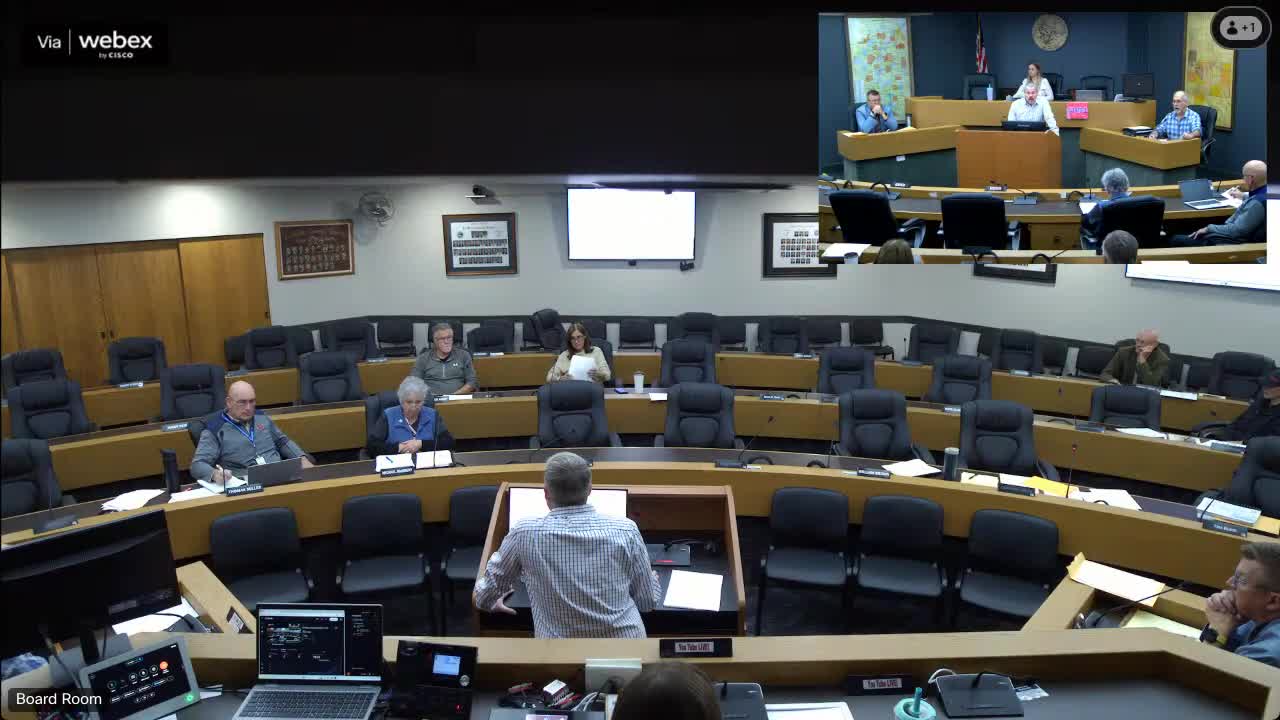Committee weighs zoning changes for battery storage and data centers; requests groundwater and utility-impact analysis
Get AI-powered insights, summaries, and transcripts
Subscribe
Summary
Staff told the committee an amendment to the state energy omnibus (SB25 amendment) would add battery-energy-storage systems to protections already extended to wind and solar; the committee asked staff to consolidate county text changes and gather groundwater and utility-impact data before finalizing any zoning revisions.
(Note: The meeting transcript contained substantial discussion across several related agenda items — this article aggregates the committee’s energy-related zoning and siting discussion.)
Staff briefed the committee on an energy omnibus amendment (referenced as an amendment to SB25) that adds battery-energy-storage systems to statutory protections that previously covered wind and solar. The change, if signed by the governor, would require counties to adopt conforming zoning language within 120 days and contains more-specific language than prior law about vegetative screening, permit fees, and limits on road-damage fees (staff described the new statutory text as requiring road fees limited to actual road-repair costs rather than an indeterminate or “excessive” charge).
Given the state-level change, staff recommended postponing the county’s proposed zoning text amendment for battery systems and data centers until state language is final so the county can adopt a consolidated amendment. Committee members agreed that it was appropriate to prepare a consolidated text amendment and to brief the zoning board in case an application arrives while state law is pending.
The committee spent substantial time on data-center siting, which includes questions about district placement (A-1 agricultural vs. I-1 industrial), whether the use should be allowed by right or only by special use, and potential annexation implications (a developer, Constellation, was noted to be holding a public Q&A in Marseilles about annexing 715 acres). Members were concerned about water and power demands for large facilities. Staff noted proposed language that would require a groundwater-monitoring plan for well systems exceeding 70 gallons per minute total and suggested comparing Yorkville’s existing language and monitoring requirements as an example. Committee members requested an updated county groundwater and water-use study before finalizing zoning language and suggested that applicants or the first project could help defray the cost of any updated studies.
The committee also discussed hydrogen production and battery storage generally as alternate ways to buffer generation but returned the main focus to the zoning text amendment: staff will draft combined language that incorporates the state’s battery-storage provisions (if enacted), tighten water-use and groundwater-monitoring language, and present a refined text amendment at the December land-use meeting for referral to the zoning board.
Why it matters: the state-level changes and local text amendment will determine how battery-energy-storage systems and data centers are sited and regulated in LaSalle County. Committee members emphasized the need for up-to-date groundwater and utility-impact data to assess siting impacts and possible mitigation requirements before adopting final zoning changes.
